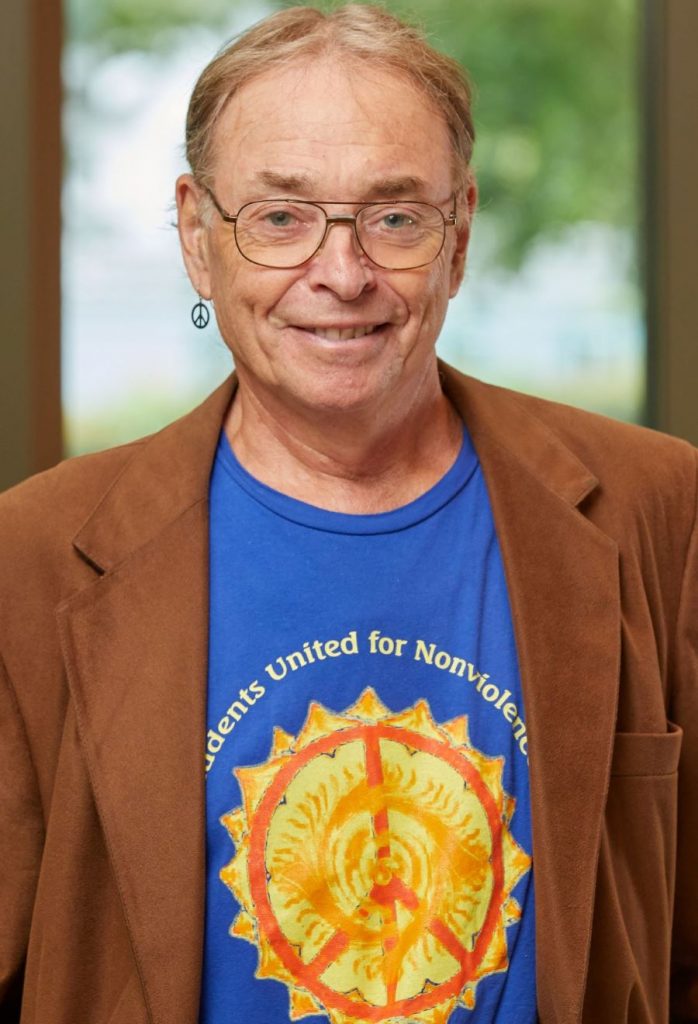- 7 Jun, 2022
- 0
- Tom H. Hastings
- Tom Hastings
An ounce upstream
An ounce upstream
by Tom H. Hastings
678 words
Published in: LA Progressive, The Portland Alliance, Counterpunch, The Riverdale Press, Pagosa Daily Post, My Journal Courier,
Dates: June 8,10,19,2022,
I tapped the drunken man on the shoulder. “David,” I said, “we need your two dollars cover charge.”
He whirled and punched me in the face.
Fortunately, not only was his aim a bit high so that his fist landed hard on my even harder forehead, but in seconds we surrounded him with four nonviolent men who used non-pain compliance physical bulk to hustle him outside where we could talk him down.
(Irony Alert): This took place a few decades ago at a peace group benefit. We provided the band–friends of the peace movement–and the bar made out because we filled their place. We did our own bouncing, and David provided the only occasion that evening for such a need. Nothing quite like getting smacked in the head at a peace dance, believe me.
I thought about it after, of course, and decided where I could have done a few things to make David far less likely to lose it.
When we think about it, virtually all of our human conflicts, by the time they erupt visibly or audibly or in the form of physical violence, are best managed long before that moment.
It’s all about the Benjamins. Franklin famously said, “an ounce of prevention is worth a pound of cure.”
But how does that work with humans in severe disagreement?
We can often anticipate conflict and that gives us a chance to act constructively long before something destructive could break out. Often the key is to simply acknowledge to ourselves this growing potential and to deal with it compassionately, respectfully, and proactively. At most stages of the best conflict management, listening is vastly more important than talking.
Of course there is no guarantee with any method of managing conflict. We have the horrifying record of violence in our cities, in our schools, in our workplaces, and in our homes to suggest that there are conflicts that cannot be foreseen and that are simply what nuclear war planners call a “BOOB” attack, a bolt out of the blue.
But what if we could “only” prevent the first 90 percent of destructive conflicts? I suspect that, given the extremely high cost of those adversarial outbursts, we would rationally choose to follow Ben’s sagacity.
This is why, in literally every class I teach at the upper division level in the university, students in their 20s, 30s and older remark at some point, Geez, I wish they had taught me this in elementary school.
In every one of those classes, I assign a midterm paper that is some form of autobiography of some aspect of conflict and conflict transformation. The instructions are basically to use our course materials to analyze how they have been exposed to, suffered from, managed, or are currently confronted by conflict.
Over the decades since I started teaching at colleges and universities, the overwhelming wish for much earlier conflict transformation education is a strong recurring theme as students reflect on their own histories and wish that they and those around them had more adaptive conflict prevention and deëscalation skills.
Perhaps if I had my life to live over, I would choose to be an elementary school teacher so I could do that education myself, but mostly what I hope happens is that these subjects are taught younger and younger by competent teachers who have taken such courses as they prepare to become the educators we need for our young ones.
Some schools already do such education, which is a good sign, and we need so much more. I earned my doctorate in education and there were zero courses in how to teach conflict transformation that were part of that degree.
This lack is costing us, as we see every day on the streets, in schools, in Congress, in our international relations, and in many families. This is certainly as important as any other subject taught to our children. Turning out high school graduates who are adept at transforming destructive conflict into creative relationships could be a major factor in helping heal our divided, dysfunctional society.
—_____________________

Dr. Tom H. Hastings is Coördinator of Conflict Resolution BA/BS degree programs and certificates at Portland State University, PeaceVoice Senior Editor, and on occasion an expert witness for the defense of civil resisters in court.
© 2023 PeaceVoice
tom-h-hastings